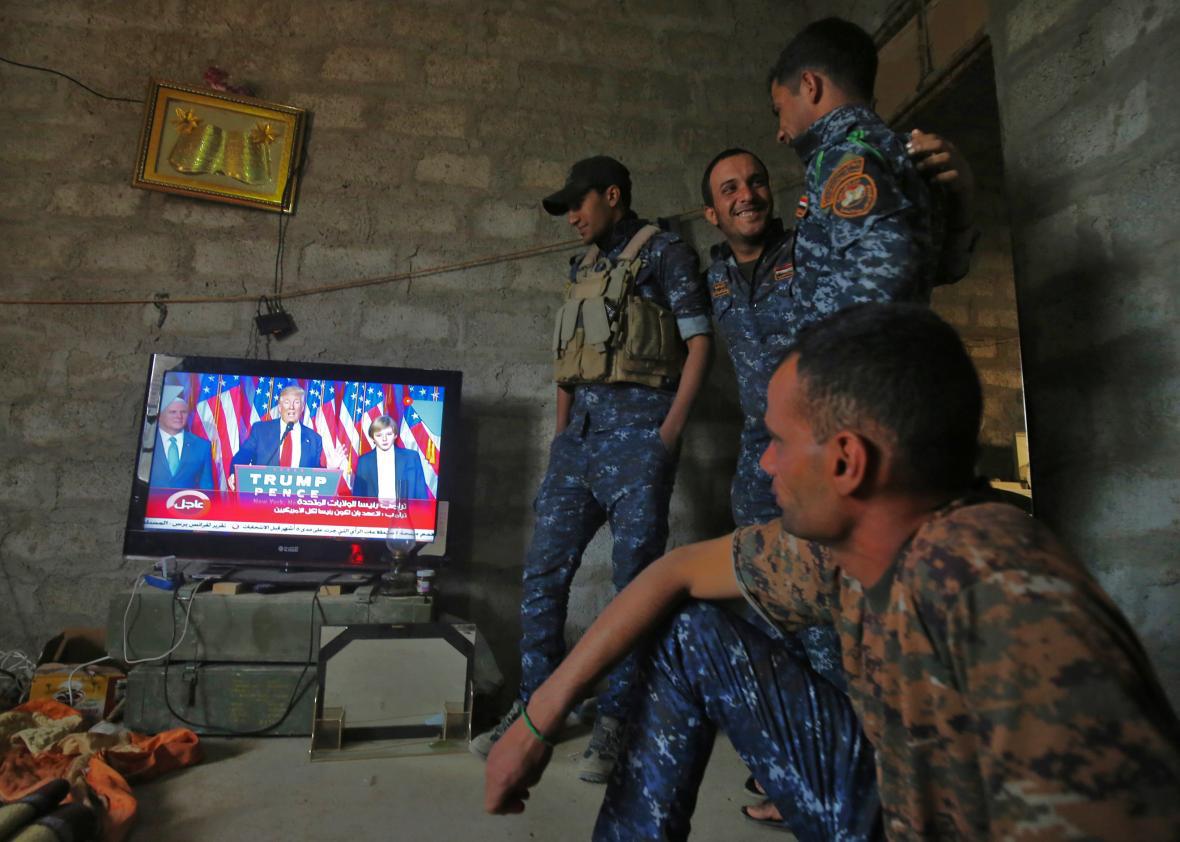Iraq will not be retaliating against the U.S. travel ban on its citizens, says Prime Minister Haider al-Abadi. The country’s Parliament had adopted a reciprocal measure to ban U.S. citizens from entering the country, but the Abadi says he will not act on it, given his need for U.S. support in the war against ISIS. “We are studying possible decisions, but we are in a battle and we don’t want to harm the national interest,” he said.
As has been widely pointed out, no attacks have been committed on U.S. soil by citizens of the seven countries President Trump’s executive order covers. But one thing they do have in common is that—unlike, say, Saudi Arabia, Egypt, or Jordan—they’re not in a position to fight back or put significant pressure on the U.S.
Iraq is a major recipient of U.S. aid and has little hope of ousting ISIS from Mosul without American help. Libya and Yemen are in the midst of civil wars and barely have central governments to speak of. Somalia’s government is chronically weak and receives a significant amount of U.S. aid.
Bashar al-Assad’s Syrian government has little control over who enters its territory and, in any case, is likely hoping that the Trump administration might remove its pariah status in the name of fighting terrorism, so it’s unlikely to rock the boat.
Sudan’s foreign ministry summoned the chargé d’affaires of the U.S. embassy in Khartoum following the order, but Sudan faces a bargaining disadvantage right now. In the closing days of his administration, President Obama lifted longstanding and damaging trade sanctions on the country, kicking off a six-month review period during which Trump could reinstate the restrictions.
Iran, which does not have formal diplomatic relations with the United States, is currently debating retaliatory measures against U.S. travelers, which, like the American ban, would probably most affect Iranian-Americans and their families. As the wealthiest, most stable, and militarily strongest country on the list, Iran does have ways of antagonizing, or at least provoking, the United States, as last weekend’s ballistic missile test showed. But given that the Trump administration is likely itching for a pretext to tear up the Iran nuclear deal, and the enthusiasm of some of Trump’s advisers for regime change, the Iranians don’t have much leverage.
